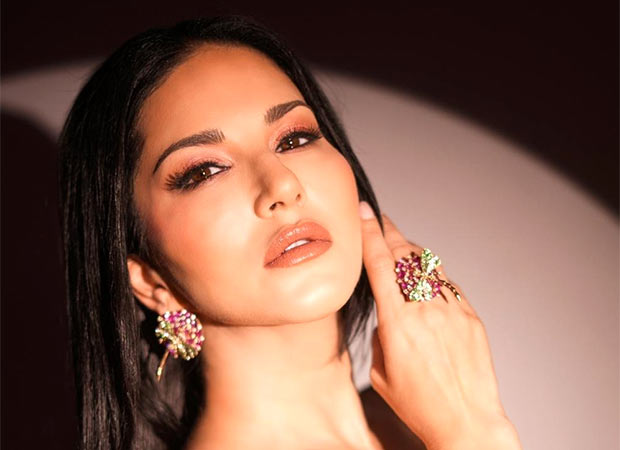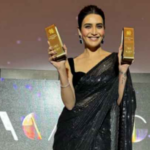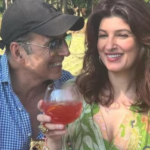Sunny Leone, a well-known actress and performer, recently faced a significant hurdle in her professional journey when she was denied permission to perform at Kerala University. This incident has sparked a wave of discussions and debates, touching upon various aspects of societal norms, cultural values, and the intersection of entertainment with academic environments. The denial of permission to Sunny Leone by the university authorities serves as a microcosm reflecting broader issues related to censorship, morality, and the evolving landscape of public performances in educational institutions.
Sunny Leone, born Karenjit Kaur Vohra, is a former adult film star who transitioned into mainstream Indian cinema. Her journey from the adult entertainment industry to Bollywood has been both celebrated and criticized, making her a polarizing figure in Indian society. Her performances and public appearances often attract significant attention, not only from her fans but also from those who view her past career with skepticism. This complex persona of Sunny Leone adds layers to the controversy surrounding her scheduled performance at Kerala University.
Kerala University, one of the prestigious educational institutions in India, is known for its progressive stance on various social issues. However, the decision to deny Sunny Leone permission to perform was based on several factors that highlight the institution’s balancing act between maintaining its reputation and adhering to societal expectations. The university authorities cited concerns over potential disruptions and security issues as primary reasons for their decision. They argued that the presence of a celebrity like Sunny Leone could attract large crowds, posing a risk to the safety of students and faculty. Additionally, they emphasized the need to uphold the academic environment of the university, which they believed could be compromised by such an event.
Beyond logistical and security concerns, the decision also reflects deeper cultural and moral considerations. India, with its rich tapestry of cultural norms and values, often finds itself at the crossroads of modernity and tradition. Sunny Leone’s background in the adult film industry is a contentious point for many, and her transition to mainstream entertainment has not entirely erased the stigma associated with her past. For some conservative sections of society, her public appearances are seen as a challenge to traditional values and an endorsement of morally questionable choices. This moral dilemma is amplified in an academic setting like Kerala University, where the primary focus is on education and intellectual growth.

Critics of the university’s decision argue that denying Sunny Leone the opportunity to perform is a form of censorship that undermines the principles of freedom of expression. They contend that an individual’s past should not dictate their present opportunities and that Leone, as a legitimate performer in the entertainment industry, deserves the same platform as any other artist. Furthermore, they point out that the university’s action could set a precedent for similar institutions, leading to a culture of exclusion based on subjective moral judgments.
Supporters of the decision, however, view it as a necessary step to maintain the sanctity and decorum of the academic environment. They believe that educational institutions have a responsibility to uphold certain standards and that inviting a performer with a controversial background could send mixed signals to students. This perspective is rooted in the belief that universities should be bastions of ethical and moral values, preparing students not just academically but also as responsible members of society.
The incident has also opened up discussions about the role of universities in shaping cultural discourse. Educational institutions have historically been centers of progressive thought, often challenging societal norms and pushing the boundaries of accepted practices. In this context, the decision to deny Sunny Leone a platform can be seen as a step back from this progressive tradition. It raises questions about the extent to which universities should engage with controversial figures and whether doing so could actually enrich the academic experience by exposing students to diverse perspectives.
Furthermore, the controversy brings to light the broader issue of women’s autonomy and the double standards often applied to them in public life. Sunny Leone’s career choices have subjected her to scrutiny and judgment in ways that her male counterparts rarely experience. This gendered dimension of the controversy highlights the persistent challenges women face in achieving equality and acceptance, particularly when their choices deviate from conventional norms. By denying her the opportunity to perform, Kerala University inadvertently reinforces these gender biases, signaling that certain paths taken by women can lead to perpetual ostracism.
The media’s role in amplifying the controversy cannot be overlooked. The coverage of Sunny Leone’s denied performance has been extensive, with various outlets offering differing interpretations of the event. Some have portrayed it as a victory for conservative values, while others see it as a setback for artistic freedom. This media frenzy contributes to the polarization of public opinion, making it difficult to have a nuanced discussion about the underlying issues. The portrayal of Sunny Leone in the media, often focusing on her past rather than her current achievements, further complicates the public’s perception and the university’s decision-making process.

In response to the denial, Sunny Leone herself has maintained a dignified stance, emphasizing her commitment to her work and her respect for institutional decisions. Her reaction has garnered praise from many quarters, showcasing her resilience and professionalism in the face of controversy. This incident, while a setback, also highlights her ability to navigate the complexities of public life with grace and poise.
Moving forward, the incident at Kerala University could serve as a catalyst for broader discussions about the role of public figures in educational settings and the criteria used to determine their suitability. It underscores the need for clear policies that balance security and logistical concerns with the principles of inclusivity and freedom of expression. Such policies should be transparent and consistently applied, ensuring that decisions are made based on objective criteria rather than subjective moral judgments.
Moreover, this controversy could spur universities to engage more deeply with the cultural and ethical dimensions of public performances. By fostering open dialogues about the implications of inviting controversial figures, educational institutions can prepare students to critically assess and engage with diverse viewpoints. This approach aligns with the core mission of universities to cultivate informed and open-minded individuals capable of navigating a complex world.
In conclusion, the denial of permission for Sunny Leone to perform at Kerala University is a multifaceted issue that touches upon security, cultural values, freedom of expression, and gender biases. While the university’s decision reflects a cautious approach to maintaining its academic environment, it also raises important questions about censorship and the role of controversial figures in educational settings. As society continues to grapple with these issues, it is essential for institutions to strike a balance that respects diverse perspectives while upholding their core values. This incident serves as a reminder of the ongoing tensions between tradition and modernity, and the need for thoughtful deliberation in navigating these challenges.








